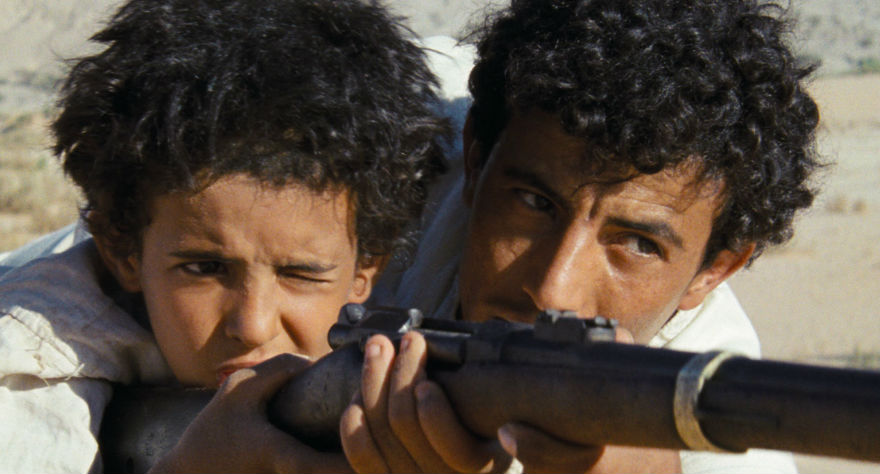
A clear-cut yet culturally rich survival tale, 'Theeb' is an assured and sharply focused debut.

A clear-cut yet culturally rich survival tale, 'Theeb' is an assured and sharply focused debut.
English-Jordanian filmmaker Naji Abu Nowar crafts an assured and sharply focused debut feature in Theeb, a clear-cut yet culturally rich tale of survival centered around a young boy from the Ottoman province of Hijaz during World War I. The modest coming of age story has garnered vague comparisons to Lawrence of Arabia, with which it shares not only a time and place but exact filming locations. Nowar smartly inverts Lean’s Western perspective, presenting a distinctly fresh take on familiar territory that proves a simple narrative can become more layered when it transpires from a point of view that seldom receives screen time.
The titular young boy (Jacir Eid Al-Hwietat), whose name we eventually discover means “Wolf” in Arabic, is not thrust into an adventure by chance, but instead willingly follows his brother Hussein (Hussein Salameh Al-Sweilhiyeen) away from their campsite. Hussein has been tasked with aiding another man in guiding a stubborn Englishman (Jack Fox) to his desired destination. The Englishman is quickly angered when Theeb, on several occasions, attempts to examine his various trinkets and possessions. This action and reaction not only characterizes Theeb as a curious youth, but also uses the Englishman as a symbol for a dryly funny jab at the avarice inherent to colonialism, which one can glean Nowar is neither fond of, nor interested in exploring any further. The film seems decidedly more invested in the cultural identity of its region than any potential commentary on a single cultural presence in particular.
That being said, Nowar also maintains an exceptionally narrow and deliberate focus on Theeb. The young boy is prominent in every scene, the narrative never ceasing to unwind from his unique perspective. When gunshots echo over towering hills of sand in the distance, they register not as an intimate or familiar danger, but an emblem of fear, the gravity of which we are just beginning to fully comprehend. It is remarkable how many situations throughout Theeb’s brisk 100-minute run time feel as though we are witnessing them through a boy’s eyes. Very few first-time filmmakers have such a keen ability to interpret their story precisely how it would be perceived by their central character. Perhaps what is most impressive about Nowar’s work here is his ability to frame and divulge information through these deceptively simple gestures.
One could label the film as minimalist without worrying about any receptive indignation. Nothing in Nowar’s picture is ambiguous or difficult, and the storytelling is always lean and direct. Moment by moment, our interest is captured through restrained tension. If Nowar needs to convey that bandits are hunting Theeb, he points the camera at the frightened boy in hiding as opposed to the bloodthirsty bandits, building a form of suspense that is rare in American cinema, one that eats away at audiences slowly, exploiting their fear of the unknown. This approach also enhances our intimacy with Theeb and stays true to the film’s conceit of being seen entirely through his eyes.
Perhaps the only drawback to Nowar’s approach is that it results in a film that registers as relatively slight. After all, the story is admittedly straightforward and its direction is tight, uncompromising in its commitment to depicting a world of warring men through the mindset of a wide-eyed youth. Theeb relies on the care with which its sequences are composed instead of the weight of its comprehensive text. Scenes of tension are smoothly and compellingly integrated into the narrative, which earnestly follows Theeb’s struggle not only to survive but to exercise control over his own story. Nowar stands out as a unique voice with a rooted interest in offering glimpses of culture that feel unburdened by an agenda.